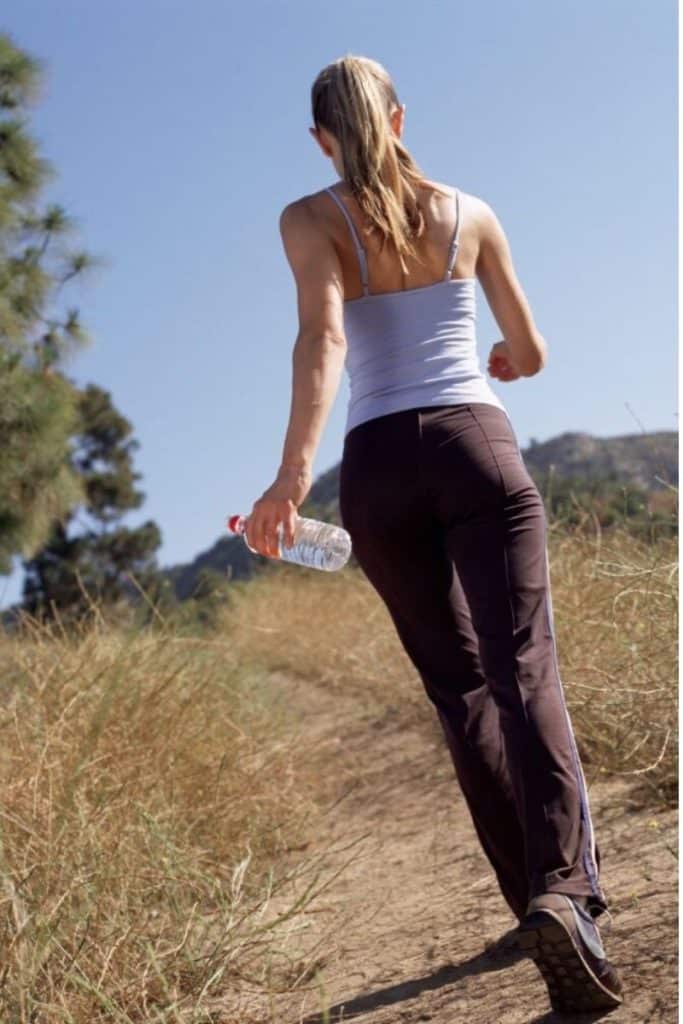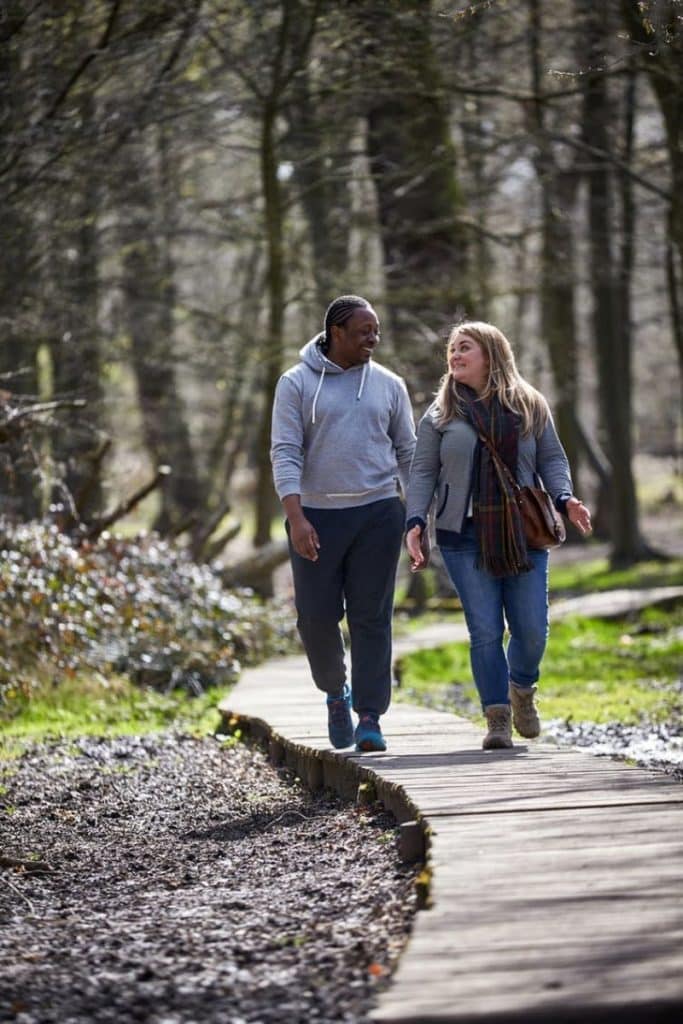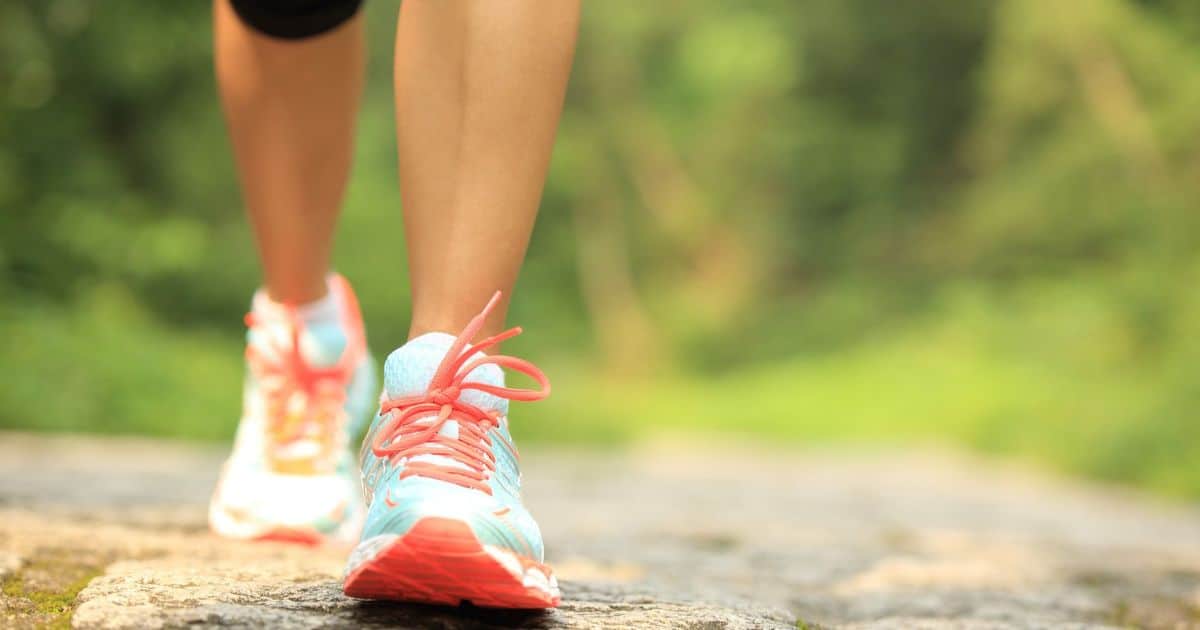Walking is a simple yet incredibly beneficial form of exercise that offers numerous advantages for both physical and mental well-being.
Whether you’re a fitness enthusiast or someone seeking to incorporate more activity into your routine, understanding how long it takes to walk 1km can be a valuable metric.
In this comprehensive guide, we’ll explore the factors influencing your walking pace and provide you with practical insights to help you achieve your fitness goals.
Factors That Affect Your 1km Walking Time

The duration it takes to walk 1km can vary significantly from person to person due to several factors. Let’s delve into the key elements that influence your walking speed:
Age and Gender
Age and gender play a crucial role in determining your natural walking pace. Generally, men tend to walk faster than women, and younger individuals often outpace their older counterparts.
Here’s a breakdown of the average 1km walking times by age and gender:
| Age Group | Average 1km Walking Time (Men) | Average 1km Walking Time (Women) |
| 20 – 29 | 12 min 16 sec | 12 min 26 sec |
| 30 – 39 | 11 min 39 sec | 12 min 26 sec |
| 40 – 49 | 11 min 39 sec | 12 min |
| 50 – 59 | 11 min 39 sec | 12 min 44 sec |
| 60 – 69 | 12 min 26 sec | 13 min 28 sec |
| 70 – 79 | 13 min 13 sec | 14 min 44 sec |
Fitness Level
Your overall fitness level significantly impacts your walking speed. Individuals who engage in regular physical activity and exercise tend to have higher endurance levels, allowing them to maintain a brisker pace for longer durations.
Walking Speed
The speed at which you walk can greatly influence the time it takes to cover 1km. A leisurely stroll at a pace of 3 miles per hour (mph) will naturally take longer than a brisk walk at 4 mph or higher.
Stride Length and Height
Taller individuals typically have longer stride lengths, which can contribute to a faster walking pace. Similarly, those with shorter legs or smaller strides may need to take more steps to cover the same distance, potentially increasing their overall walking time.
Terrain
The terrain you’re walking on can also affect your pace. Walking on flat, paved surfaces is generally easier than navigating uphill or uneven terrain, which can slow you down and increase the time required to complete 1km.
Personal Weight
Your body weight can play a role in your walking speed. Individuals carrying excess weight may find it more challenging to maintain a brisk pace, potentially increasing the time it takes to walk 1km.
What is the Average 1km Walking Time?
For most healthy adults, the average time to walk 1km at a moderate pace of 3-4 mph ranges from 10 to 12 minutes. However, it’s essential to remember that this is just a general guideline, and your individual time may vary based on the factors mentioned above.
To illustrate, let’s consider the experience of Sarah, a 35-year-old woman with an active lifestyle.
Sarah typically walks 1km in about 11 minutes at a pace of 3.5 mph. However, during her morning walks on hilly terrain, she notices that it takes her closer to 13 minutes to cover the same distance due to the added challenge of inclines and declines.
Surprising Benefits of Walking Just 1km Daily

While 1km may seem like a modest distance, incorporating a daily 1km walk into your routine can yield numerous benefits for your overall well-being:
- Improved Heart Health: Regular walking can help lower blood pressure, reduce the risk of heart disease, and improve cardiovascular fitness.
- Mood Boost: Exercise releases endorphins, which can improve your mood and reduce stress levels.
- Increased Focus: Walking has been shown to enhance cognitive function and improve concentration.
- Calorie Burning: Even a leisurely 1km walk can burn around 60 calories, contributing to weight management efforts.
- Stronger Muscles and Bones: Walking is a weight-bearing exercise that can help build and maintain strong muscles and bones, reducing the risk of osteoporosis and fractures.
- Lower Blood Sugar and Cholesterol: Regular walking can help regulate blood sugar levels and improve cholesterol profiles, reducing the risk of diabetes and heart disease.
- Opportunity to Connect with Nature: Walking outdoors provides an opportunity to enjoy fresh air, sunshine, and natural surroundings, which can have a calming effect on the mind and body.
Tips for Building a 1km Daily Walking Habit
Incorporating a 1km daily walk into your routine can be a simple yet effective way to improve your overall health and well-being. Here are some tips to help you establish and maintain this habit:
- Start Slow: If you’re new to walking or haven’t been physically active for some time, start with a shorter distance and gradually increase to 1km as you build endurance.
- Choose Comfortable Shoes and Clothing: Invest in a good pair of walking shoes that provide adequate support and cushioning. Wear breathable, lightweight clothing that allows for freedom of movement.
- Stay Hydrated: Carry a water bottle, especially during warmer weather, and stay hydrated throughout your walk.
- Set a Consistent Time: Establish a regular time for your daily walk, such as first thing in the morning or during your lunch break. Consistency will help solidify the habit.
- Invite Friends or Family: Walking with others can make the experience more enjoyable and provide added motivation and accountability.
- Track Your Progress: Use a step counter, fitness tracker, or smartphone app to monitor your distance, pace, and overall progress.
- Mix It Up: Vary your walking routes to keep things interesting and explore new environments.
How to Walk 1km Faster (For Those Who Want a Challenge)
If you’re looking to challenge yourself and increase your walking speed, here are some tips to help you walk 1km faster:
- Proper Walking Posture and Technique: Maintain an upright posture, engage your core muscles, and swing your arms naturally to improve your efficiency and speed.
- Add Intervals: Incorporate short bursts of faster walking or jogging into your routine to increase your overall pace.
- Incorporate Hills or Inclines: Walking uphill can increase the intensity of your workout and build leg strength, which can translate to faster walking on flat surfaces.
- Use Hand Weights: Carrying light hand weights while walking can add resistance and increase the calorie burn, potentially improving your overall speed.
- Cross-Train with Strength Exercises: Incorporating strength training exercises, such as squats and lunges, can build muscle strength and power, which can contribute to a faster walking pace.
FAQs
How much time does it take to walk 1 km?
For most healthy adults, walking 1km at a moderate pace of 3-4 mph takes approximately 10-12 minutes.
How far is 1 kilometer in minutes?
1 kilometer is equal to approximately 0.62 miles. For an average walker, it takes around 10-12 minutes to cover this distance.
How fast is 1 km in 15 minutes?
Walking 1km in 15 minutes equates to a pace of approximately 2.5 mph or 4 km/hour.
How many minutes per km walking?
On average, most people can walk 1km in 10-12 minutes at a moderate pace, which translates to approximately 10-12 minutes per kilometer.
Conclusion
Walking 1km may seem like a small feat, but it can have a profound impact on your overall health and well-being. By understanding the factors that influence your walking pace and incorporating a daily 1km walk into your routine, you can reap numerous benefits, including improved cardiovascular health, increased energy levels, and a boosted mood.
Remember, the key to success is consistency and gradually building up your endurance. Start at a comfortable pace and gradually challenge yourself to walk faster or incorporate intervals or inclines. With dedication and perseverance, you’ll not only achieve your fitness goals but also experience the joy of movement and the sense of accomplishment that comes with each step.
So, lace up your walking shoes, step out, and embrace the power of a daily 1km walk – your mind, body, and overall well-being will thank you!

I founded the sports news website SportRevUp in 2022 to deliver breaking news and in-depth analysis on major leagues like the NFL, NBA, and MLB.
With years of experience reporting on professional sports, I created an ad-free platform for engaging coverage and discussion as editor-in-chief overseeing all content strategy.
I continues developing SportRevUp to provide sports fans the news and discussion they crave about favorite teams and athletes.
